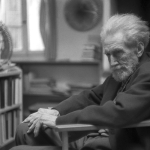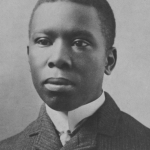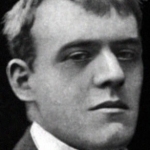Best and brightest, come away!
Fairer far than this fair Day,
Which, like thee to those in sorrow,
Comes to bid a sweet good-morrow
To the rough Year just awake
In its cradle on the brake.
The Brightest hour of unborn spring,
Through the winter wandering,
Found, it seems, the halcyon Morn
To hoar February born.
Bending from heaven, in azure mirth,
It kissed the forehead of the Earth,
And smiled upon the silent sea,
And bade the frozen streams be free,
And waked to music all their fountains,
And breathed upon the frozen mountains,
And like a prophetess of May
Strewed flowers upon the barren way,
Making the wintry world appear
Like one on whom thou smilest, dear.
Away, away, from men and towns,
To the wild wood and the downs—
To the silent wilderness
Where the soul need not repress
Its music lest it should not find
An echo in another’s mind.
While the touch of Nature’s art
Harmonizes heart to heart.
I leave this notice on my door
For each accustomed visitor:—
“I am gone into the fields
To take what this sweet hour yields;—
Reflection, you may come tomorrow,
Sit by the fireside with Sorrow.—
You with the unpaid bill, despair,—
You, tiresome verse-reciter, Care,—
I will pay you in the grave,—
Death will listen to your stave.
Expectation too, be off!
Today is for itself enough;
Hope, in pity mock not Woe
With smiles, nor follow where I go;
Long having lived on thy sweet food,
At length I find one moment’s good
After long pain—with all your love,
This you never told me of.”
Radiant sister of the Day,
Awake! arise! And come away!
To the wild woods and the plains,
And the pools where winter rains
Image all their roof of leaves,
Where the pine its garland weaves
Of sapless green, and ivy dun
Where the lawns and pastures be,
And the sandhills of the sea:—
Where the melting hoar-frost wets
The daisy-star that never sets,
And wind-flowers, and violets,
Which yet join not scent to hue,
Crown the pale year weak and new;
When the night is left behind
In the deep east, dun and blind,
And the blue noon is over us,
And the multitudinous
Billows murmur at our feet,
Where the earth and ocean meet,
And all things seem only one
In the universal sun.
















Comment form: